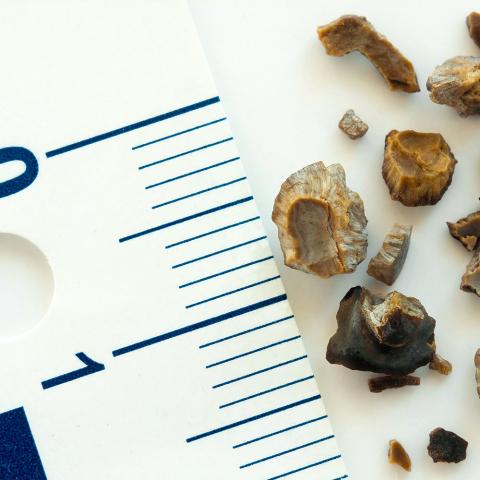
Most stones in the kidney which are small (up to 5 mm diameter) do not require treatment if they are not causing any symptoms.
These stones may pass spontaneously down the ureter without the need for surgery. Very small stones (up to 3mm) can even pass without any pain as they may not cause any blockage on their way out. Stones between 3 and 5 mm often cause pain (renal colic) while passing down the ureter.
Small stones in the kidney generally continue to grow over months or years. Some stones stay stable in size, but this is less common. Despite the fact that small stones may pass spontaneously, some patients will request treatment in order to avoid an episode of pain in the future. This is especially common in patients who have experienced severe kidney stone pain in the past.
If a decision is made not to treat a small kidney stone, it is generally monitored from time to time (often with an ultrasound) to make sure it is not growing to a size which is unlikely to pass spontaneously (greater than 5mm).
The treatment options for small kidney stones (less than 5mm) are:
- Observation only – for most patients.
- Extracorporial Shockwave Lithotripsy (ESWL).
- Ureteropyeloscopy.









